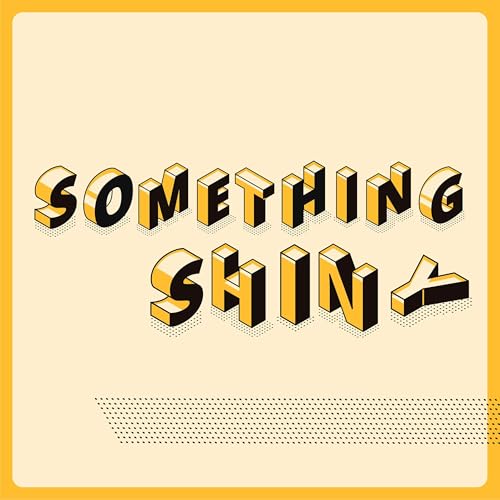Why are some of us anxious and some of us excited (or a combo platter of both)? And is it possible to turn anxiety, or anger, or shame spirals, into something else? David and Isabelle swap stories, talk transgenerational trauma, and get curious about how we are socialized to mask and behave...and that perhaps the solution for being overly apologetic lies in the midwestern gem: "ope.”-----Isabelle starts by expanding on the idea of how you think about things, how that inner landscape can connect into tapping into norepinephrine—if you’re practicing going “I see you anxiety, I see what you’re trying to do, and I’m so grateful I have you because it helps me…” what it means to not shame or blame yourself for having an instinct to worry versus what you do know to be true. Short of someone giving you direct feedback, you don’t have data either way, so saying hi to your anxiety or feeling, and taking a few breaths to be grateful. Then when you do have a tough moment, like a hard meeting at work, you won’t beat yourself up about it as much. David even says: you can skip the shame spiral. Norepinephrine is so much about the inertia and movement of something. People with kids who have ADHD either have a very very clean room, or very very messy room. For those with a messy room, they’re like “where to start? Do I burn it and start over again?” Then you give them one specific thing to do, they earn dopamine from that one thing. So you build momentum by building a feedback loop between dopamine and norepinephrine, because you judge yourself on a very reasonable scale. If you make a broad request, it’s like “whaaa?” If you say “pick up your legos” or “Hunt for all the legos you can, you have 7 minutes, you earn 3 snarf points? What’s a snarf point? I’ll tell you in 7 minutes”—you now have specificity, and time pressure, and reward. Isabelle describes that she lives in the anxious side of the spectrum, and David lives in the excitement of it. If anxiety and excitement are the same physiological symptoms, how can you replace the two things? Isabelle wonders at her anxiety, which she is not bummed about, but knows that it’s a part of her, and also knows that it has served her and her people across the generations—like she feels less anxious when she has a very stocked pantry or fridge. How can that be turned into excitement? We’re talking about the interplay of epigenetics, and the interplay of how you lean into the anxiety. If you’re in the United States, you’d be hard pressed to not have a transgenerational history of trauma, and as men and women (and non-binary folx), we are treated differently and are rewarded for going to anger or anxiety. Men are traditionally reinforced for getting angry in the U.S.—it’s reinforcing for them, and it’s not great, and in the same way anxiety may be reinforced for women. Not that it’s so cut and dry and binary-based. David elaborates that his impulsivity has been viewed as confidence, whereas for women, it can be viewed as overemotionality, and can be shamed, or put in corners. David had to work really hard to find excitement, he was way more in that angry place, fighting any system, any person he could. When you get angry, you feel yucky afterwards for like two hours, and he met really good friends, had an amazing brother, and had good supports, and a lot of people don’t have that. And he had a choice in that moment whether to get anxious or excited. Isabelle is so grateful David shared that about himself and felt so seen, really resonating with the idea that whereas David’s impulsivity was viewed as confidence, hers was read as overreacting, or overdramatic. She describes how she makes big gestures and shrieks and has big reactions to things and how often she has to blunt them or try to mask them in her daily life. She also recognizes the layers of privilege she carries as a white, cisgendered woman, that she has gotten a lot of reinforcement for her anxiety. Her asking, let’s say, her kid’s teacher a detail-oriented question seems almost assumed, that she would be the one who needs to be vigilant about the details of things, whereas her husband, Bobby, is seen as winning the day if he gets the kids to school, even though he is more effective at this. How we’re socially viewed impacts how we think about it—perhaps Bobby running late is viewed as he was busy doing important things, whereas Isabelle names she has been conditioned to be extra apologetic and nervous and take it on as some awful thing that she’s running late. David goes into Tavistock group dynamics stuff (see show notes below)—based around the work of Wilfred Bion—where people learn how they are in a group. David was in a group and someone came in late and were overly explaining it, the group ended up attacking her about all her apologies—David named there is an art to being late, and it is this: acknowledging the inconvenience, ...



